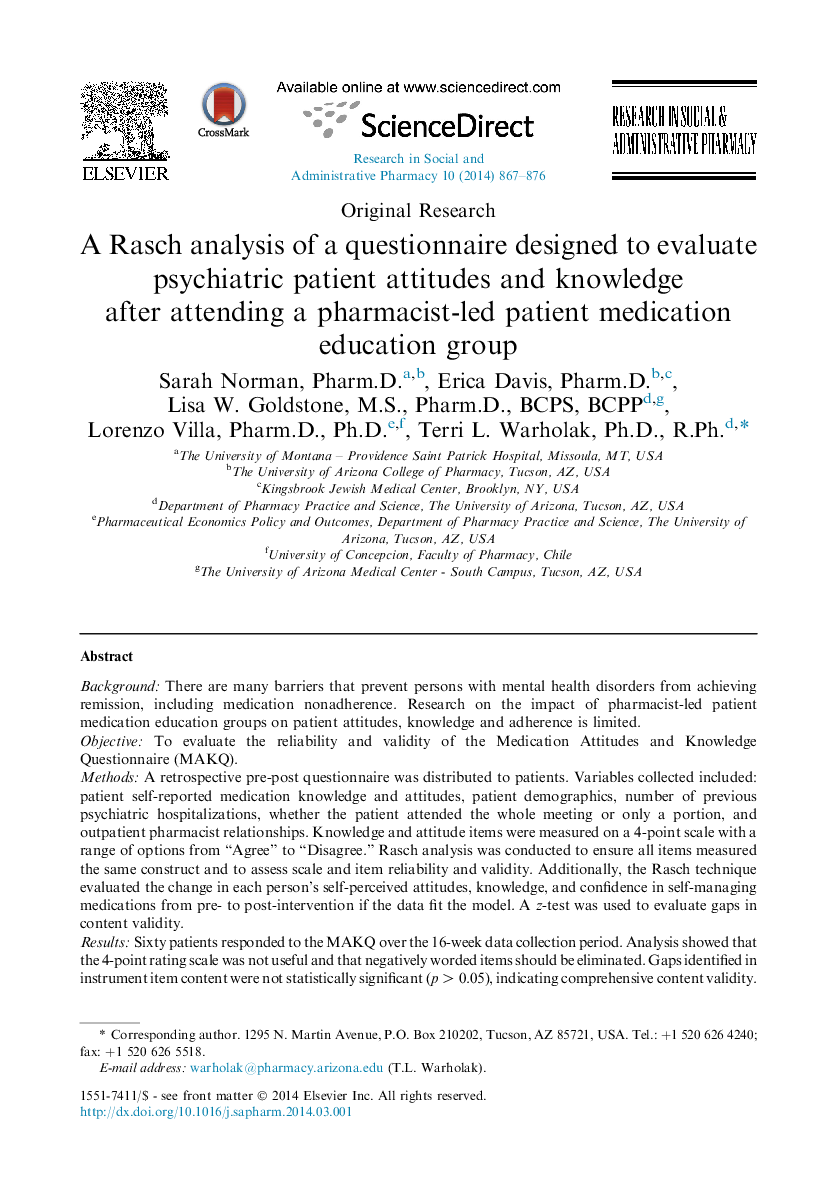| Article ID | Journal | Published Year | Pages | File Type |
|---|---|---|---|---|
| 2508364 | Research in Social and Administrative Pharmacy | 2014 | 10 Pages |
BackgroundThere are many barriers that prevent persons with mental health disorders from achieving remission, including medication nonadherence. Research on the impact of pharmacist-led patient medication education groups on patient attitudes, knowledge and adherence is limited.ObjectiveTo evaluate the reliability and validity of the Medication Attitudes and Knowledge Questionnaire (MAKQ).MethodsA retrospective pre-post questionnaire was distributed to patients. Variables collected included: patient self-reported medication knowledge and attitudes, patient demographics, number of previous psychiatric hospitalizations, whether the patient attended the whole meeting or only a portion, and outpatient pharmacist relationships. Knowledge and attitude items were measured on a 4-point scale with a range of options from “Agree” to “Disagree.” Rasch analysis was conducted to ensure all items measured the same construct and to assess scale and item reliability and validity. Additionally, the Rasch technique evaluated the change in each person's self-perceived attitudes, knowledge, and confidence in self-managing medications from pre- to post-intervention if the data fit the model. A z-test was used to evaluate gaps in content validity.ResultsSixty patients responded to the MAKQ over the 16-week data collection period. Analysis showed that the 4-point rating scale was not useful and that negatively worded items should be eliminated. Gaps identified in instrument item content were not statistically significant (p > 0.05), indicating comprehensive content validity.ConclusionsMedication attitudes and knowledge items on the retrospective pre-post questionnaire were valid and reliable.
